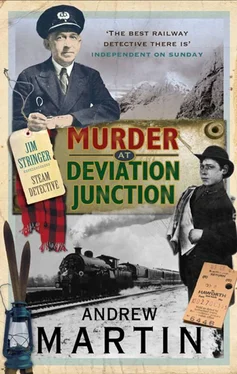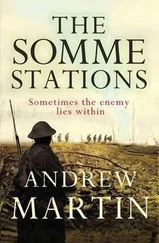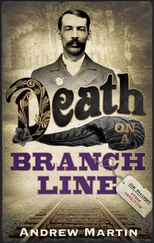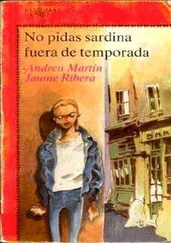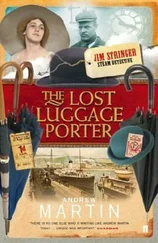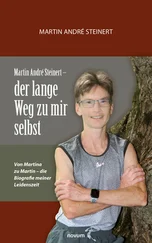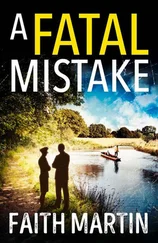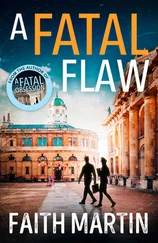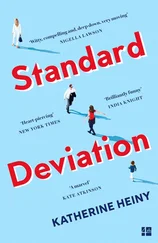Small David was now moving along a little way - going away from me. But I kept up my steady, bent-over advance. There was now a steadier clanking coming from below the viaduct. The mineral train was moving.
I veered to my left and gave it a glance. It was coming up to the legs of the viaduct. Small David looked down at it too, but he did so from a stationary position in the middle of the viaduct. I looked to the right. It hurt to do it, but there was the Rectory Works. The fires leapt from the kiln tops, more beautiful than any Christmas decoration, and it was the strength of purpose that made them so.
In the middle of the sound of the sea, and the sea wind, and the clanking train, I stood to the rear of Small David. He was leaning over the viaduct wall. It was hardly decent, but I reached forwards and took hold of the tweed of his topcoat where it lay over his arse. I lifted it and I pitched him away into the wind. I had done with him.
I leant over and watched him go.
In the middle of air Small David looked like a frog I had once seen making a leap: too thick about the middle, arms and legs of no account, although these did move about a little as he flew. He hit a middle wagon of the iron train, and then - thank Christ - he stopped moving. I could not have stood the sight of him squirming on the ironstone, but then again, what would have happened if that sight had indeed met my eyes? I looked along the viaduct wall to the wind gauge. It operated a signal that checked trains in any really strong blow, and it was still thrashing away for all it was worth, not aware that the disaster had in fact already occurred.
I turned about again and looked at the kilns of the Rectory Works. A strange red spirit crawled upwards from the top of each one. On the gantry that ran along the tops stood a single man. I remained for an hour on the Kilton Viaduct, and I watched every wagon from the train rise to the point where it was tilted by automatic process. Sometimes the gantry man was visible in his upper world, sometimes not. He came and went from a metal shack attached to one end of the gantry platform. Whatever he was about up there, he did not pay attention to what was being pitched into the kilns. Anything that came up with those wagons was for burning and no questions asked.
Presently, a train came along the viaduct. It would be at about five p.m. - I could not have said at the time. I stopped it with my hand. I believe that I made the driver aware of my warrant card, but it may be that he'd said, 'Let's have you in, mate,' before seeing it.
I was taken up on to the footplate, and I took up a position directly before the fire, causing the fireman, as I seem to remember, to curse all the way to the terminus. But I believe that I was magnetised by that fire, for the driver had to shift me bodily away from it at Whitby West Cliff, explaining that here they must pitch it away, having reached the end of their turn.
Chapter Thirty-nine
I made my way out of the station with my new, bent walk, but I felt that I was straightening up by degrees.
The town of Whitby was freshly covered in snow, which was ruffled by great gusts coming in from the sea. The black water was low in the harbour, and the ships and boats were all a little skew, as if drunk, which their owners very likely would have been at that moment. The pubs and hotels around were all ablaze with light as I walked first around the grand new buildings on the west side.
I was trying to walk off the effects of having killed a man.
A car was turning outside the front of the Metropole, and half the guests - in their finest clothes - had turned out to watch the manoeuvre. They looked like the most innocent people in the world.
I went across the harbour bridge to the east side, and walked along the road on which stood the offices of the Whitby Morning Post. They were closed now, and I squinted inside at the heap of back numbers on the long table. Old papers made a litter. You ought not to look back. But still I turned - or was it the wind racing in from the sea that made me turn? - towards the Bog Hall sidings, spread out beyond the station, where all the wagons and carriages were arranged in neat lines for their Christmas rest. One of them had been something special once, for the saloon built to the instructions of the Whitby-Middlesbrough Travelling Club was doubtless still in there. The wind rose again, stirring the boats and lifting the snow crystals from all the rooftops, and the high graveyard of St Mary's church. I didn't quite like to look towards the church, for I had hardly turned the other cheek back there on the viaduct.
I looked instead towards the town of Whitby in general, Amid the flying white particles, I saw a softer, rising whiteness from beyond the station roof. It was Christmas Eve, and the men at the controls of that steaming engine would be anxious to be away. I made towards them.
I boarded the last train of the evening for York with seconds to spare. Another man came into the compartment just as I had settled myself. He was a tall, pale man and wore a good, fur-trimmed topcoat. He leant over my outstretched legs and yanked down the leathern strap that controlled the window. He knew it was not quite correct behaviour on such a night, but he required the refreshment of the cold air. As he sat down, and as the train began drawing away out of the station, he eyed me, challenging me to speak out.
But I made no objection.
